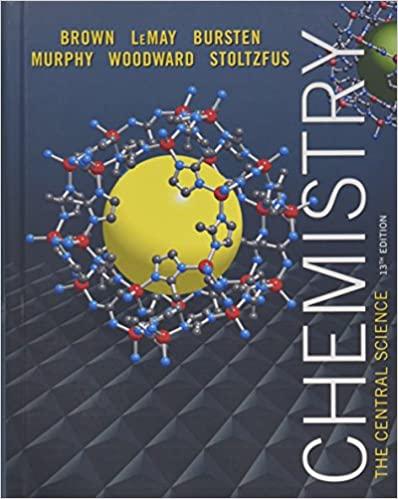Silver chloride, AgCl(s), is an insoluble strong electrolyte. (a) Write the equation for the dissolution of AgCl(s)
Question:
Silver chloride, AgCl(s), is an “insoluble” strong electrolyte.
(a) Write the equation for the dissolution of AgCl(s) in H2O(I).
(b) Write the expression for Kc for the reaction in part (a).
(c) Based on the thermochemical data in Appendix C and Le Châtelier’s principle, predict whether the solubility of AgCl in H2O increases or decreases with increasing temperature.
(d) The equilibrium constant for the dissolution of AgCl in water is 1.6 × 10-10 at 25°C. In addition, Ag+(aq) can react with Cl-(aq) according to the reaction Ag+(aq) + 2Cl- (aq) ⇌ AgCl2-(aq) where Kc = 1.8 × 105 at 25°C. Although AgCl is “not soluble” in water, the complex AgCl2- is soluble. At 25°C, is the solubility of AgCl in a 0.100 M NaCl solution greater than the solubility of AgCl in pure water, due to the formation of soluble AgCl2- ions? Or is the AgCl solubility in 0.100 M NaCl less than in pure water because of a Le Châtelier-type argument? Justify your answer with calculations. (Hint: Any form in which silver is in solution counts as “solubility.”)
Step by Step Answer:

Chemistry The Central Science
ISBN: 9780321910417
13th Edition
Authors: Theodore E. Brown, H. Eugene LeMay, Bruce E. Bursten, Catherine Murphy, Patrick Woodward, Matthew E. Stoltzfus





